Reåliågion
Koran, quam, islamic teachings
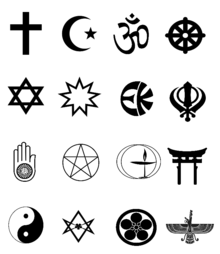
re·li·gion (rĭ-lĭj ən)
See
reåliågion
Religion
Islam is not a religion, nor is it a cult. In its fullest form, it is a complete, total, 100% system of life.
By citing a supernatural source for their teachings, they are protected as a religion. Islam has religious, legal, political, economic, social, and military components. The religious component is a cover for all of the other components.
Hitler missed out. Had he said he heard voices from above, Nazism could be practiced today as a legal religion. Leaders of religion today want to be the conduit to god, Hitler wanted to be God. Actually, in his early days, after watching some religious ceremony Hitler was profoundly struck and this may well be where he started seeing himself as a messiah.
In the Koran or quam (it is a slur get over it), it says 126 times (give or take a few, depending on who you talk to): “convert or die” In one form or another, you decide:
- “Some ye slew and ye made captive some. And he caused you to inherit their land and their houses and their wealth and land ye have not trodden. . . “ Koran 33:26-27
- “I shall terrorize the infidels, so wound their bodies and incapacitate them because they oppose Allah and his Apostle“ Koran 8:12
- “The infidels should not think that they can get away from us. Prepare against them whatever arms and weaponry you can muster so that you may terrorize them. They are your enemy and Allah’s enemy.” Koran 8:59
- “Your lord inspired the angels with the message: ‘I am with you. Give firmness to the Believers. I will terrorize the unbelievers. Therefore smite them on their necks and every joint and incapacitate them. Strike off their heads and cut off each of their fingers and toes.” Koran 8:12
- “Kill the unbelievers wherever you find them.” Koran 2:191
- “Make war on the infidels living in your neighborhood.” Koran 9:123
- “When opportunity arises, kill the infidels wherever you catch them.” Koran 9:5
- “Any religion other than Islam is not acceptable.” Koran 3:85
- “The Jews and the Christians are perverts fight them.”... Koran 9:30
- “Maim and crucify the infidels if they criticize Islam” Koran 5:33
- “Punish the unbelievers with garments of fire, hooked iron rods, boiling water melt their skin and bellies.” Koran 22:19
- “The unbelievers are stupid urge the Muslims to fight them.” Koran 8:65
- “Muslims must not take the infidels as friends.” Koran 3:28
- “Terrorize and behead those who believe in scriptures other than the Qur'an.” Koran 8:12
- “Muslims must muster all weapons to terrorize the infidels.” Koran 8:60
The Hadith is worse, with over 400 similar passages
Hadith - are oral traditions relating to the words and deeds of the Islamic prophet Muhammad.
That is just a sample. What does that say to you?
The muslims will say: “that was 'back than' it is not now”. Really? Yet they live by the letter if the quam stronger than any other 'so-called' religion today.
The muslims say: “your taking it out of context”. again really? It says in the quam 'NOT' to be friends with a Kuffer. It also says lying is perfectly acceptable if it is to further Islam. It literally says kill anyone that does not submit to Islam, Put that in context for me please.
“We know of no absolute values besides total submission of the will of the almighty. People say: “Don’t lie!” But the principle is different when we serve the will of Allah. He taught man to lie so that we can save ourselves at moments of difficulty and confuse our enemies. Should we remain truthful at the cost of defeat and danger to the Faith? We say not. People say: “Don’t Kill!” But the Almighty himself taught us how to kill. Without such a skill man would have been wiped out long ago by the beasts. So shall we not kill when it is necessary for the triumph of the Faith?... Deceit, trickery, conspiracy, cheating, stealing and killing are nothing but means. On their own they are neither good or bad, isolated from the intentions that motivated it.”
Ayatollah Khomeini
Another document found in the home of a terrorist suspect in 1991 illiterates the North American plan for the “Project” by “Ikhwan” (“Brothers”), the Muslim Brotherhood's American Branch. This 18 page document is a comprehensive plan that charts the ground work for the establishment of an Islamic government in North America and the implementation of Sharia law.
A small part of the document says: – grand jihad in eliminating and destroying the Western civilization from within and “sabotaging” their miserable house by their hands and the hands of the believers —
Sheikh Muhammad Jamaal spoke to 28000 December 14, 2001 at the al aksa mosque and with no apparent inhibition prayed:
- May the fire of Allah burn down the USA;
- may he drown America's ships and down her aircraft;
- may Allah afflict the USA with earthquakes;
- may Arab oil — imported by America — exterminate US leaders!
They have a plan for our destruction, they have written it down. It is unfortunate the liberals cannot read.
Partial List of lists of Killings in the Name of Islam:
pol·i·tics (pŏl′ĭ-tĭks)
The Practice and theory of influencing other people, as in government. (This could be a definition of religion)
The process of making decisions that apply to members of a group. It refers to achieving and exercising positions of governance—organized control over a human community, particularly a state.
So traditional religion is afraid to condemn Islam as a religion out of fear of bringing their own beliefs into question.
♠♣♥♦◊◊♦♥♣♠
That, my friends, is politics.
Define Religion
The "quick" and easy answer.
Sacred Belief System
Religion may be defined as a cultural system of designated behaviors and practices, morals, worldviews, texts, sanctified places, prophecies, ethics, or organizations, that relates humanity to supernatural, transcendental, or spiritual elements. However, there is no scholarly consensus over what precisely constitutes a religion.Different religions may or may not contain various elements ranging from the divine, sacred things, faith, a supernatural being or supernatural beings or "some sort of ultimacy and transcendence that will provide norms and power for the rest of life".
How does the Supreme Court defined “religion?”
Although it has attempted to create standards to differentiate religious beliefs and actions from similar nonreligious beliefs, the Supreme Court has never articulated a formal definition for religion. Given the diversity of Americans’ religious experience since the Constitution was created, a single comprehensive definition has proved elusive.
In 1890, the Supreme Court in Davis v. Beason expressed religion in traditional theistic terms: “[T]he term ‘religion’ has reference to one’s views of his relations to his Creator, and to the obligations they impose of reverence for his being and character, and of obedience to his will.”
In the 1960s, the Court expanded its view of religion. In its 1961 decision Torcaso v. Watkins, the Court stated that the establishment clause prevents government from aiding “those religions based on a belief in the existence of God as against those religions founded on different beliefs.” In a footnote, the Court clarified that this principle extended to “religions in this country which do not teach what would generally be considered a belief in the existence of God … Buddhism, Taoism, Ethical Culture, Secular Humanism and others.”
In its 1965 ruling United States v. Seeger, the Court sought to resolve disagreement between federal circuit courts over interpretation of the Universal Military Training and Service Act of 1948. The case involved denial of conscientious objector status to individuals who based their objections to war on sources other than a supreme being, as specifically required by the statute. The Court interpreted the statute as questioning “[w]hether a given belief that is sincere and meaningful occupies a place in the life of its possessor parallel to that filled by the orthodox belief in God of one who clearly qualifies for the exemption. Where such beliefs have parallel positions in the lives of their respective holders we cannot say that one is ‘in relation to a Supreme Being’ and the other is not.”
Welsh v. United States represented another conscientious-objector case under the same statute. The Court in this 1970 decision went one step further and essentially merged religion with deeply and sincerely held moral and ethical beliefs. The Court suggested individuals could be denied exemption only if “those beliefs are not deeply held and those whose objection to war does not rest at all upon moral, ethical, or religious principle but instead rests solely upon consideration of policy, pragmatism, or expediency.”
Following the expansive view of religion expressed in Seeger and Welsh, the Court in its 1972 ruling involving the Amish and compulsory school attendance suggested a shift back, to a more exclusive definition. The majority opinion in Wisconsin v. Yoder indicated that the free-exercise clause applied only to “a ‘religious’ belief or practice,” and “the very concept of ordered liberty precludes allowing every person to make his own standards on matters of conduct in which society as a whole has important interests.”
The Court in its 1981 decision Thomas v. Review Board further expressed its reluctance to protect philosophical values. The Indiana Supreme Court had ruled that a decision by a Jehovah’s Witness to quit his job after he was transferred to a weapons-making facility was a “personal philosophical choice rather than a religious choice” and did not “rise to the level of a first amendment claim.” In overturning the Indiana decision, Chief Justice Warren Burger cautiously stated, “[o]nly beliefs rooted in religion are given special protection to the exercise of religion.” The Court found the worker’s actions to be motivated by his religious beliefs.
Few have been satisfied by the Court’s attempts to define religion. Many of the Court’s definitions use the word “religion” to describe religion itself. In other cases, the Court’s explanations seem to provide little useful guidance.
Taken from the Freedom Institute
Of all religions, Christians should insire the most tolerance, but until now christians have been the most intolerant of all men. Voltaire
I would take exception to that with regards to Islam, but I don't believe Voltaire even considered it as an actual 'religion' at the time, it was after all, very new around his time.
A few Major World Religions
Hinduism
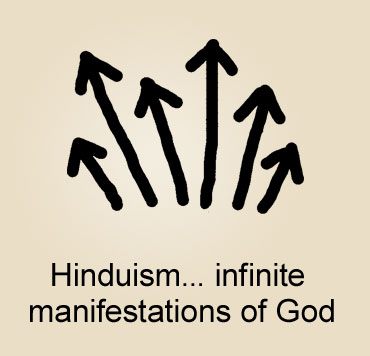
Most Hindus worship one Being of ultimate oneness (Brahman) through infinite representations of gods and goddesses. These various deities become incarnate within idols, temples, gurus, rivers, animals, etc.
New Age Spirituality and its beliefs
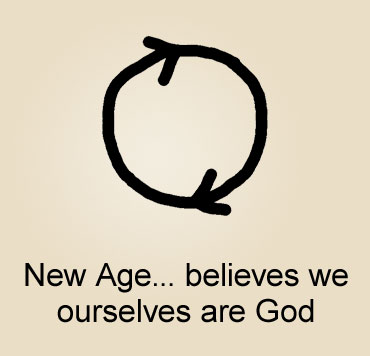
New Age Spirituality promotes the development of the person's own power or divinity. When referring to deity, a follower of this type of spirituality is not talking about a transcendent, personal God who created the universe, but is referring to a higher consciousness within themselves.
Buddhism and its beliefs
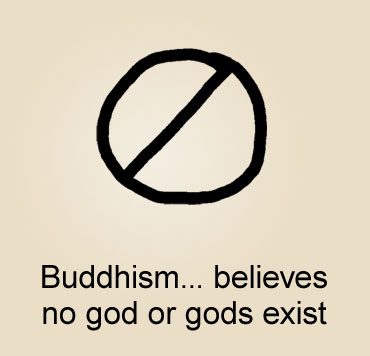
Buddhists do not worship any gods or God. People outside of Buddhism often think that Buddhists worship the Buddha. However, the Buddha (Siddhartha Gautama) never claimed to be divine, but rather he is viewed by Buddhists as having attained what they are also striving to attain, which is spiritual enlightenment and, with it, freedom from the continuous cycle of life and death.
Islam and its beliefs
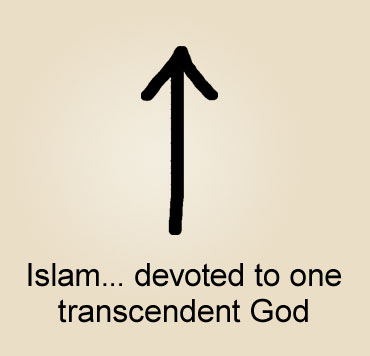
Muslims believe there is the one almighty God, named Allah, who is infinitely superior to and transcendent from humankind. Allah is viewed as the creator of the universe and the source of all good and all evil. Everything that happens is Allah's will.
For more in-depth explantations go to
Every Student.
See also
Religion 2 on religion.

 Most Hindus worship one Being of ultimate oneness (Brahman) through infinite representations of gods and goddesses. These various deities become incarnate within idols, temples, gurus, rivers, animals, etc.
Most Hindus worship one Being of ultimate oneness (Brahman) through infinite representations of gods and goddesses. These various deities become incarnate within idols, temples, gurus, rivers, animals, etc.
 New Age Spirituality promotes the development of the person's own power or divinity. When referring to deity, a follower of this type of spirituality is not talking about a transcendent, personal God who created the universe, but is referring to a higher consciousness within themselves.
New Age Spirituality promotes the development of the person's own power or divinity. When referring to deity, a follower of this type of spirituality is not talking about a transcendent, personal God who created the universe, but is referring to a higher consciousness within themselves.
 Buddhists do not worship any gods or God. People outside of Buddhism often think that Buddhists worship the Buddha. However, the Buddha (Siddhartha Gautama) never claimed to be divine, but rather he is viewed by Buddhists as having attained what they are also striving to attain, which is spiritual enlightenment and, with it, freedom from the continuous cycle of life and death.
Buddhists do not worship any gods or God. People outside of Buddhism often think that Buddhists worship the Buddha. However, the Buddha (Siddhartha Gautama) never claimed to be divine, but rather he is viewed by Buddhists as having attained what they are also striving to attain, which is spiritual enlightenment and, with it, freedom from the continuous cycle of life and death.
 Muslims believe there is the one almighty God, named Allah, who is infinitely superior to and transcendent from humankind. Allah is viewed as the creator of the universe and the source of all good and all evil. Everything that happens is Allah's will.
Muslims believe there is the one almighty God, named Allah, who is infinitely superior to and transcendent from humankind. Allah is viewed as the creator of the universe and the source of all good and all evil. Everything that happens is Allah's will.